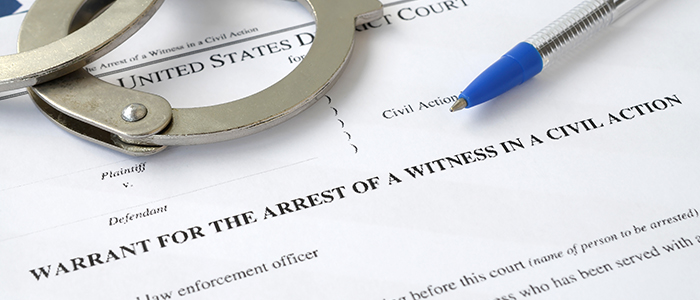Any casual viewer of any crime show such as Law & Order is familiar with the terms arrest warrant and search warrant. Warrants are an integral part of many criminal investigations and must meet specific criteria. In this article, we will discuss the difference between an arrest warrant and a search warrant.
What Is A Warrant?
A warrant is a legal document that authorizes law enforcement to conduct an activity which they otherwise would not have the ability to perform. Generally speaking, a law enforcement agency drafts a document that authorizes an investigatory agency to conduct some specific activity in the name of public safety. If the warrant meets certain legal criteria, a judge will sign the warrant granting law enforcement the ability to perform whatever activity is is they are requesting to perform. There are two types of warrants, an arrest warrant and a search warrant.
What Is An Arrest Warrant?
An arrest warrant is a legal document that allows the police to arrest suspects in a criminal investigation. Only a judge or a grand jury can issue an arrest warrant. Arrest warrants must be supported by probable cause for them to be valid.
How Is Probable Cause Determine For An Arrest Warrant?
To show probable cause for an arrest warrant, the police investigating the crime must give a sworn affidavit based on evidence collected. The evidence can come from multiple sources. For example, observations made by the police, witness statements, or other information that connects the suspect to the crime can support probably cause. A judge then reviews the information to determine whether to issue an arrest warrant. On the other hand, attorneys can present the evidence to a grand jury. Then, the grand jury votes whether to issue an arrest warrant.
What Is A Search Warrant?
A search warrant is a legal document approved by a judge. The search warrant gives the police the authority to search a specific location for evidence connected to a crime. To obtain a search warrant, the police will need to justify the purpose of the search. In addition, there is a time limit in which law enforcement officers must execute a search warrant. If the police fail to execute the search warrant before the time expires, the search warrant will become void. Then, the police will have to seek a new one.
Can The Police Arrest A Person Without An Arrest Warrant?
Florida Statutes 901.15 outline situations where the police may arrest an individual without an arrest warrant. Most of the exceptions provided in the statute deal with cases where the police observe a crime in the act of being committed or has probable cause that the suspect recently committed a crime.
Can The Police Conduct A Search Without A Search Warrant?
The Fourth Amendment of the United States Constitution protects people from unreasonable search and seizures. The United States Supreme Court has ruled that any evidence obtained without a lawful search warrant may be inadmissible in court. With that said, some exceptions may come into play. For example, evidence that is out in the open and observed by the naked eye or if a person invites the police to search an area.
An example would be that the police see a small bag of crack cocaine in the cupholder during a traffic stop. In this situation, since the crack cocaine is in the open and the officer can see it easily, the search and seizure of the car would not require a search warrant.
In Conclusion
The formal requirements for warrants can be a complicated matter with many exceptions. If you or a loved one has been arrested or feel your rights have been violated, contact Adam Bantner for a consultation, 813.397.3965.


